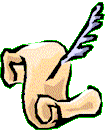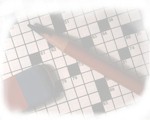Actual
Real Life Excuses
These are actual excuse notes
from parents (including original spelling) collected by Nisheeth Parekh, University of
Texas Medical Branch @ Galveston...
My son is under a doctor's care and should not take P.E. today. Please execute him.
Please excuse Lisa for being absent. She was sick and I had her shot.
Please excuse Gloria from Jim today. She is administrating.
Please excuse Roland from P.E. for a few days. Yesterday he fell out of a tree and
misplaced his hip.
John has been absent because he had two teeth taken out of his face.
Carlos was absent yesterday because he was playing football. He was hurt in the growing
part.
Megan could not come to school today because she has been bothered by very close veins.
Chris will not be in school cus he has an acre in his side.
Please excuse Ray Friday from school. He has very loose vowels.
Please excuse Pedro from being absent yesterday. He had (diahre) (dyrea) (direathe) the
s**ts. [words were crossed out in the ( )'s]
Please excuse Tommy for being absent yesterday. He had diarrhea and his boots leak.
Irving was absent yesterday because he missed his bust.
Please excuse Jimmy for being. It was his father's fault.
I kept Billie home because she had to go Christmas shopping because I don't know what size
she wear.
Please excuse Jennifer for missing school yesterday. We forgot to get the Sunday paper off
the porch, and when we found it Monday, we thought it was Sunday.
Sally won't be in school a week from Friday. We have to attend her funeral.
My daughter was absent yesterday because she was tired. She spent a weekend with the
Marines.
Please excuse Jason for being absent yesterday. He had a cold and could not breed well.
Please excuse Mary for being absent yesterday. She was in bed with gramps.
Gloria was absent yesterday as she was having a gangover.
Please excuse Burma, she has been sick and under the doctor.
Maryann was absent December 11-16, because she had a fever, sore throat, headache and
upset stomach. Her sister was also sick, fever and sore throat, her brother had a low
grade fever and ached all over. I wasn't the best either, sore throat and fever. There
must be something going around, her father even got hot last night.
A GUY Calls
A guy calls the hospital. He says, "You gotta send help! My
wife's going into labor!"
The nurse says, "Calm down. Is this her first child?"
He says, "No! This is her husband!"
KashaL@concentric.net
| Kasha Linka
Which Way ?!?
A man is doing his first skydive. He jumps from the
plane, freefalls for a bit, then pulls his main rip-cord... nothing happens. After a
short panic, he pulls his reserve rip-cord... again, nothing happens! As he's zooming
toward the ground, another man comes shooting past him TOWARDS THE SKY! The jumper
hollers, "Hey! Do you know anything about rip-cords???"
The other man returns, "NOooooo! Do you know anything about gas stoves?"
KashaL@concentric.net
| Kasha Linka
Which Way !#$@%
A man is doing his first skydive. He jumps from the
plane, freefalls for a bit, then pulls his main rip-cord... nothing happens. After a
short panic, he pulls his reserve rip-cord... again, nothing happens! As he's zooming
toward the ground, another man comes shooting past him TOWARDS THE SKY! The jumper
hollers, "Hey! Do you know anything about rip-cords???"
The other man returns, "NOooooo! Do you know anything about gas stoves?"
KashaL@concentric.net
| Kasha Linka
Just Read The Signs
A policeman pulls over a car load of nuns....
Policeman: Sister, this is a 65 MPH highway--why are you going so slow?"
Sister: "Sir, I saw a lot of signs that said 22, not 65."
Policeman: "Oh sister, that's not the speed limit, that's the name of the highway
you're on!
Sister: "Oh! Silly me! Thanks for letting me know. I'll be more careful."
At this point the Policeman looks in the back seat where the other nuns are shaking and
trembling.
Policeman: "Excuse me, Sister, what's wrong with your friends back there? They're
shaking something terrible."
Sister: "Oh, we just got off of highway 119."
KashaL@concentric.net
| Kasha Linka




 I daresay one profits more by the mistakes one makes off one's own bat than by
doing the right thing on somebody's else advice.
I daresay one profits more by the mistakes one makes off one's own bat than by
doing the right thing on somebody's else advice. Today's Word –
MASTICATE
Today's Word –
MASTICATE



